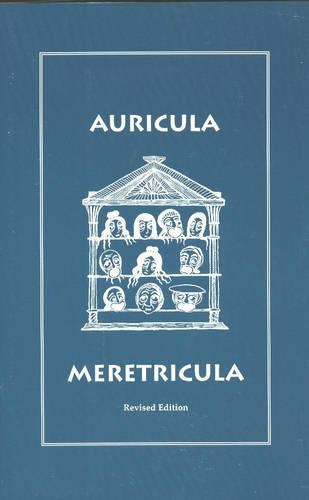
Auricula Meretricula
(Paperback, Second Edition)
Publishing Details
Auricula Meretricula
By (Author) Ann Cumming
By (author) Mary Whitlock Blundell
Focus Publishing/R Pullins & Co
Focus Publishing/R Pullins & Co
1st January 1993
Second Edition
United States
Classifications
Tertiary Education
Non Fiction
Language teaching and learning material and coursework
872
Physical Properties
Paperback
58
Width 178mm, Height 280mm, Spine 11mm
173g
Description
Auricula Meretricula is a unique play for students in their first semester of Latin. Each scene uses new forms and vocabulary, thus reinforcing the students' grasp of grammar by placing it in a living context. At the same time it provides an enticing introduction to Roman comedy and elegy. First published in 1981, Auricula Meretricula was greeted with enthusiasm by students and teachers, and is currently used in many classics departments in the US and elsewhere. This substantially revised edition includes new scenes and characters while reducing the overall quantity of unfamiliar vocabulary. Originally Auricula Meretricula was written as a companion to Wheelock but can be used in conjunction with any introductory Latin textbook. This text provides a dramatic addition to a Latin course, allowing students to read, speak and act out Latin comedy, with a vocabulary found in the second half of many first year Latin textbooks.
Reviews
"The book is excellent, stimulating, lively and probably the best elementary reader I've seen for communicating something of how Latin was probably spoken. ...[It] is extremely well planned, very sensibly graded in the rising degree of difficulty from one chapter to the next, and all in all the ideal companion to Wheelock." -- Michael Dewar, University of Calgary
Author Bio
Ruby Blondell is Professor of Classics at the University of Washington in Seattle. She has published widely on Greek literature and philosophy, and the reception of myth in popular culture. Her books include "The Play of Character in Plato's Dialogues" (Cambridge 2002); "Women on the Edge: Four Plays by Euripides" (co-authored) (Routledge 1999); "Helping Friends and Harming Enemies. A Study in Sophocles and Greek Ethics" (Cambridge 1989).
